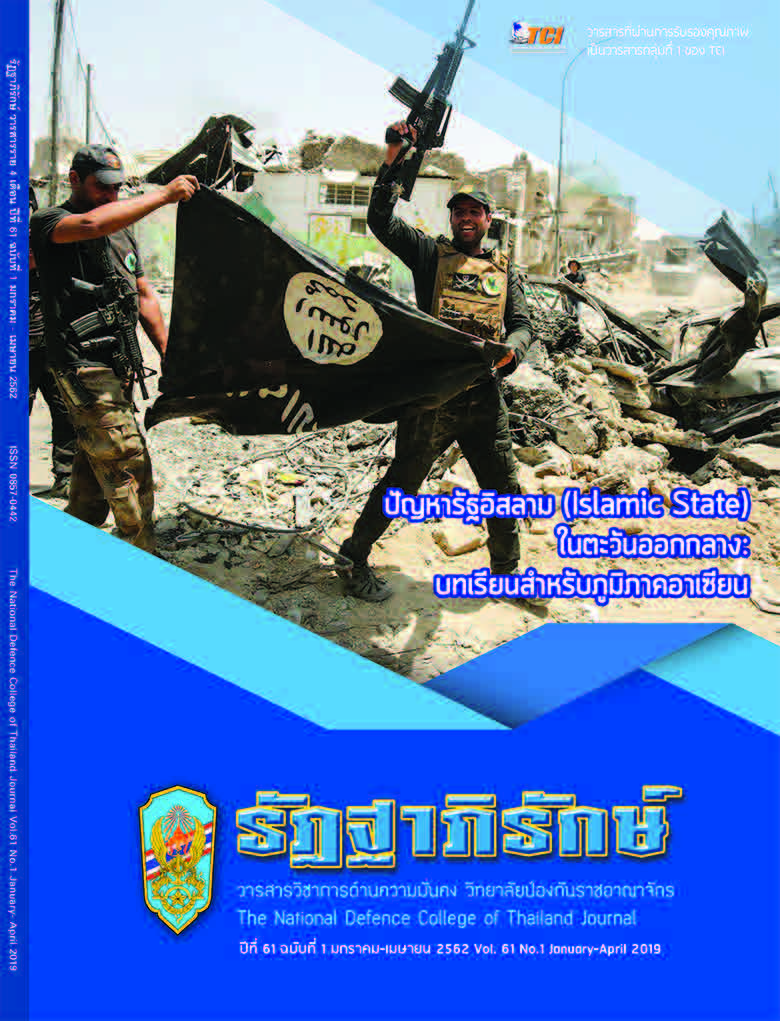The Problem of Islamic State in the Middle East: the Lesson for the ASEAN Region
คำสำคัญ:
Islamic State, Terrorism, ASEAN Community, Middle Eastบทคัดย่อ
After the 9/11 incident, on 11 September 2001, had shaken the world, the United States
declared “War on terror” to hunt down Osama bin Laden, the founder of Al-Qaeda, who believed
to be the mastermind behind the incident. Although the operation was declared a success after
10 years of hunting, it cannot bring back peace to the world and the region. Instead, it has created
a more extreme terrorist group aiming to establish an Islamic State as the centre and leader of all
Islamic worlds known as “Caliphate”. Later on, the group had successfully occupied part of Iraq
and Syria and declared the establishment of “Islamic State of Iraq and the Levant” and called itself
“Islamic State” or “IS”. With the hard suppression and support of major powers such as Russia and
the United States, Syria and Iraq were able to seize territory back from IS. Nonetheless, IS is still able
to operate around the world by using social media as a tool to spread its ideology. In ASEAN, the
world has witnessed the capture of Marawi, the city in Mindanao, the Philippines, by Maute who call
themselves the “Islamic State of Lanao”. The Philippines government had spent 5 months to seize
back the town and the Maute’s brothers were killed in the combat. However, the terrorist groups
affiliated to IS are still operating in several countries of ASEAN such as Malaysia, Indonesia and the
Philippines. The formation of the establishment of an Islamic State in the Middle East has resulted
in intensified acts of terrorism around the world and ASEAN.
With the significance of the IS activities, this paper seeks to suggest lessons learned
and proposes policies to strengthen and prevent the expansion of terrorism in the
ASEAN’s region and Thailand. The scope of this research is the study of establishment of Islamic
states in the Middle East compared with terrorist activities in ASEAN through 5 factors namely; history,
geopolitics, internal factors, external factors and development of the situation.
Finally, I do hope that information from in-depth interviews with Thai and
international experts will make the paper more valuable.
ดาวน์โหลด
เผยแพร่แล้ว
ฉบับ
ประเภทบทความ
สัญญาอนุญาต
บทความ ข้อเขียน หรือความคิดเห็นในนิตยสารนี้เป็นของผู้เขียน ไม่ผูกพันกับวิทยาลัย ป้องกันราชอาณาจักรและทางราชการแต่อย่างใด



